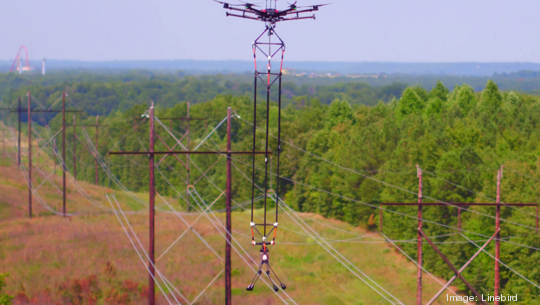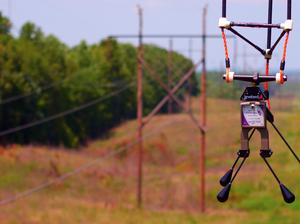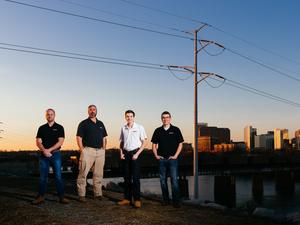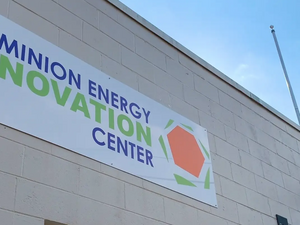
A Richmond company that builds tools that drones use to work on live power lines closed $350,000 in convertible debt financing last month.
Linebird builds specialized payloads, tools and sensors for drones that allow work on live power lines — work that would otherwise require a manned crew in a helicopter or a bucket truck in a hazardous situation. Linebird’s Osprey system can function at high altitude and on high-voltage transmission lines, letting the pilot operate it with boots safely on the ground.
“That money is going to be used to serve our initial customers, so that we get excellent initial roll up and deployments to the big names that we're working with within utility industry,” said Linebird founder and CEO Michael Beiro.
Beiro also plans to use the funding to expand the four-person company’s sales efforts, to attend more trade shows and increase its marketing efforts all in a bid to grow revenue.

“It’ll put us in a good position to raise a seed round for the company of seven-figure qualified financing, or just grow the company organically if the growth is even better and we don't even need to raise investment to that point,” said Beiro.
Linebird’s ongoing research and development goal is to take many of the other tools and tasks that are performed by linemen using an insulated fiberglass pole and adapt them for drones. Another goal: scaling up production beyond its current dozen or so units.
Linebird, which was founded in 2018, announced the launch of Osprey in August after three-and-a-half years of development and then in December started selling its products, which cost between $30,000 and $50,000.
“We've sold a handful of units at this point, and we're hoping by Q3 of this year to have sold in the mid-to-high double digits of units,” said Biero, who is clear about the risks. “Insurance is always complicated when you're telling people that you plan to use drones on live power transmission lines.”
He acknowledged the utility industry has a reputation for moving slowly on innovation, because the grid needs to be managed conservatively. Technology used to produce the Osprey is costly. Beiro estimated Linebird has spent “somewhere in the order of $50,000 to $100,000 worth of drone equipment.”




